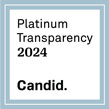Critically Endangered Goliath Groupers, Hope for Sharks and the State of Our Corals
July 17, 2018
By: Angela Smith, Shark Team One
The world spoke and Florida state conservation managers listened regarding the fate of the goliath grouper in Florida waters! The Florida Fish and Wildlife Conservation Commission (FWC) voted on April 26 to save the goliath grouper instead of opening up a potentially devasting fish and kill lottery on these iconic fish. Goliath groupers are critically endangered worldwide so the decision to not allow catch and kill was highly important for their continued recovery in Florida. These fish are classic apex predators, large, rare and only a few individuals occur on any given reef, so they are very important to the ecosystem.

Goliath groupers do not have federal endangered species protection status yet, so the issue to catch and kill goliaths could come up again, but for the foreseeable future the fate of the goliath grouper is safe and the Coastal Southeast Florida Hope Spot community was a driving force in their protection. Concerned stakeholders from every group imaginable, educational, nonprofit, scientific, institutional, recreational fishing and the diving community pulled together to save this important fish.

Photo: © Marie Dugan, Shark Team One
Speakers at the April 26th FWC meeting took various paths in favor of conserving goliath groupers. Reef fish visual census (RVC) survey results were presented, effects of the high mercury content in goliath grouper meat was discussed, impacts for loss of income to the diving community and Florida tourism should goliath grouper diving ecotourism be shut down, as well as points regarding intrinsic value were all presented and discussed at the meeting.
FWC made conservation decisions regarding the goliath grouper and in another recent meeting also agreed to further pursue working on draft regulations for shore-based shark fishing which has drawn increased public attention in recent years due to a number of issues including the mishandling of endangered shark species during catch and release fishing. By not following FWC’s recommended guidelines for prohibited shark species catch and release procedures, the practices of some anglers have resulted in the deaths of great hammerheads, tiger sharks and other species. With a tough image, some may think sharks are impervious to rough handling and extended time out of the water, yet many species are very fragile in this regard. Large coastal sharks like great hammerheads have the instinct to fight to the death once hooked. Even a short fight on the line may cause death from exhaustion after catch and release fishing even if the shark appears to swim away after release.

Photo: © Angela Smith, Shark Team One
Hope Spot updates also include the establishment of a long-term water quality monitoring program being facilitated by state funding made possible by the work of stakeholders from the Southeast Florida Coastal Ocean Forum and SEFCRI (Southeast Florida Coral Reef Initiative). Many government agencies and institutions will oversee this multiyear project which seeks to improve ocean water quality in the Southeast Florida region.
Local scientists are fighting the ongoing coral disease outbreaks by many innovative means including firebreaks and the administering of an antibiotic paste recently approved for use in our waters. Sadly, progression of the current diseases, impacts of storms and effects of bleaching events have now severely impacted most species of corals in the Southeast Florida region and destroyed many nearshore reefs. The disease(s) have been encountered from St. Lucie Reef in the north all the way through the Coastal Southeast Florida Hope Spot area and as far south as the Middle Keys at the time of this writing. Many governmental, NGO and institutional organizations are working to report and figure out innovative ways to save our coral reefs.

Photo: © Angela Smith, Shark Team One
Even after coral disease and bleaching impacts, a category 5 hurricane and brushes with conflicts of interest such as the goliath grouper issue, the Coastal Southeast Florida Hope Spot remains strong in its ability to be resilient. Progress with maintaining the area as a critical location for endangered species is very high and work on marine protected areas remains in development and has made significant progress since our last Hope Spot update due to the passing of House Bill 53 and Senate Bill 232 on March 19th. Those bills created the Southeast Florida Coral Reef Ecosystem Conservation Area which is the official beginning of the designated area for protection and provides funding for critical coral preservation within the Hope Spot.

Photo: © Kirk Kilfoyle, Shark Team One
Driven by the conviction of scientists, conservationists, NGOs and an entire community working to protect this area, I am proud to see the progress of the Coastal Southeast Florida Hope Spot since our last update.
Thank you Mission Blue for your continued inspiration of hope that is necessary to save ocean ecosystems and the species that depend on them. It’s the hope that lies in the heart of every person who cares about endangered species and the fate of our oceans that inspires us!

Photo: © Dr. Kirk Kilfoyle, Nova Southeastern University’s Halmos College of Natural Sciences and Oceanography
Please follow this link to see a goliath grouper PSA and video footage from the recent FWC meeting where the goliath grouper was discussed.







